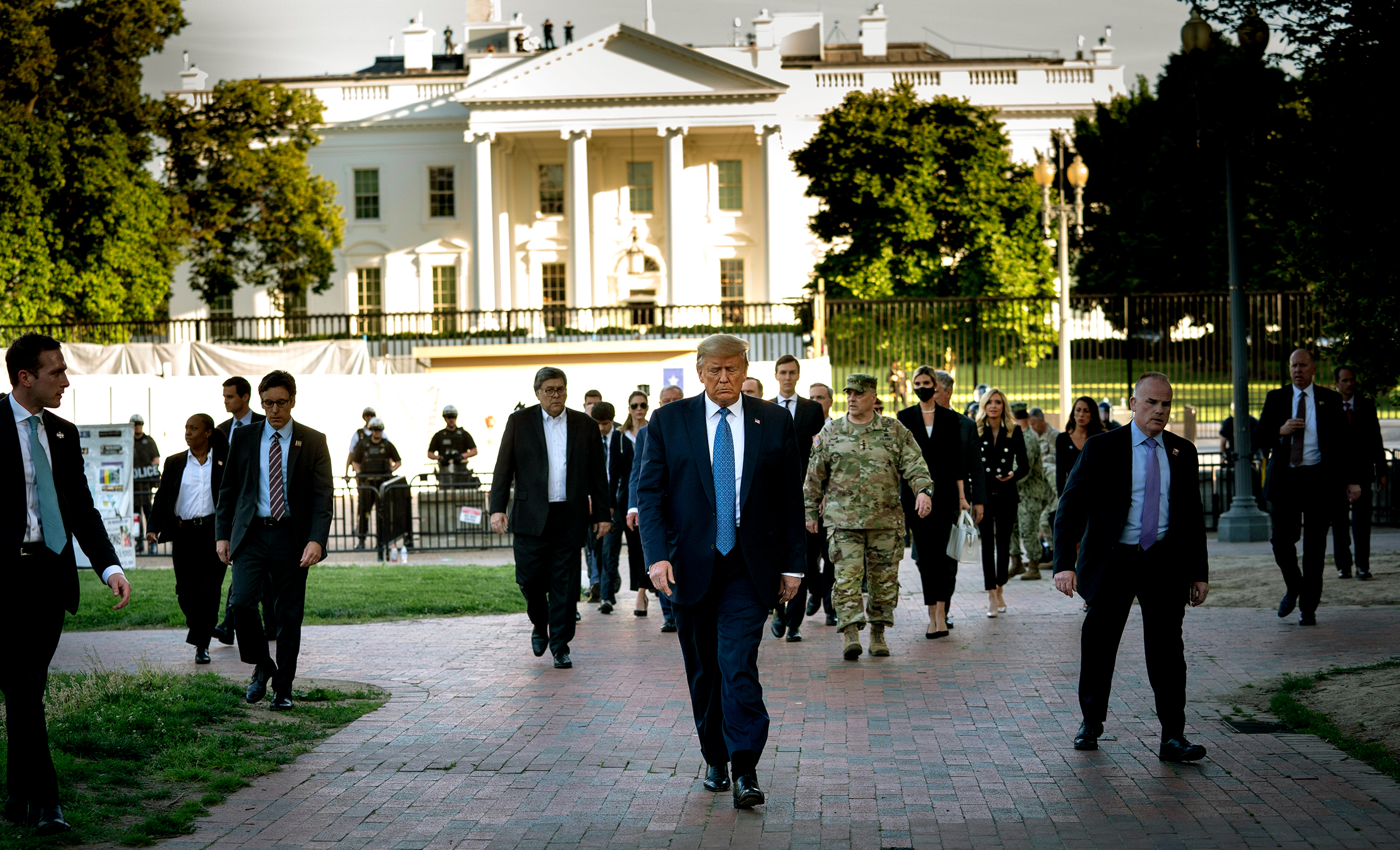
Amid rising concerns about threats to American democracy, more than a dozen former U.S. defense secretaries and top generals published an open letter Tuesday warning that the nation’s political polarization is putting “extreme strain” on the relationship between uniformed service members and the country’s civilian leadership.
The letter, signed by eight former Defense secretaries and five former chairmen of the Joint Chiefs of Staff who served in both Republican and Democratic administrations, refuses to lay blame at the feet of any one politician or political party in keeping with the military’s longstanding norm of non-partisanship. However, it implicitly calls out former-President Donald Trump and his refusal to accept he lost the 2020 election to President Joe Biden.
“Politically, military professionals confront an extremely adverse environment characterized by the divisiveness of affective polarization that culminated in the first election in over a century when the peaceful transfer of political power was disrupted and in doubt,” says the letter, which was published on the national security website, War on the Rocks.
It’s not just what’s been dubbed, “the Big Lie.” Cascading challenges derive from the COVID-19 pandemic, economic downturn and the disillusioning end of the U.S. wars in Iraq and Afghanistan “without all the goals satisfactorily accomplished,” the letter says. The convergence of these woes has put undue strain on Americans. “Looking ahead, all of these factors could well get worse before they get better,” the letter says.
Read More: Inside One Combat Vet’s Journey From Defending His Country to Storming the Capitol
The chiefs—including two of Trump’s defense secretaries, James Mattis and Mark Esper—then enumerate “core principles and best practices” of civilian control of the military that have helped ensure democratic governance over the course of American history.
Past presidents from both parties have been criticized for politicizing the military. It became part of a national debate during the summer of 2020 when then-President Trump attempted to brandish the nation’s armed services to crush domestic turmoil that sprang up after George Floyd, an unarmed Black man, was killed by Minneapolis police. The overriding concern was Trump wielded the armed forces to put down protests and unrest in the country for personal political gain, rather than national interests.
More recently, Biden has taken fire from critics for delivering a prime-time speech Thursday night in Philadelphia with two uniformed Marines posted behind him.
“Military and civilian leaders must be diligent about keeping the military separate from partisan political activity,” the letter says. “Members of the military accept limits on the public expression of their private views—limits that would be unconstitutional if imposed on other citizens.”
The Pentagon remains deeply concerned about extremism in the ranks and about extremist groups attempting to recruit military personnel. After it came to light that many of those who stormed the Capitol on Jan. 6, 2021 were military veterans, the military launched a variety of initiatives to weed out individuals with links to extremist organizations. Service members swear an oath to defend the Constitution, not individuals.
Politicians “have the right to be wrong,” the letter says, “even if other voices warn in advance that the proposed action is a mistake.” Troops are required to carry out legal orders, regardless whether they agree with leaders’ wisdom. “Civil-military teams build up that reservoir of trust in their day-to-day interactions and draw upon it during times of crisis,” the letter says.
The emphasis on civilian control of the military is remarkable, considering two of the last three congressionally confirmed Defense Secretaries, Mattis and Lloyd Austin, were former four-star generals who did not meet the federal mandate that dictates the person leading the Pentagon must be retired from the military for seven years. The fact that both Mattis and Austin required special waivers granted by Congress to take over the job isn’t mentioned in the letter.
The letter is signed by former Defense Secretaries Mattis, Esper, Ash Carter, Robert Gates, Leon Panetta, Chuck Hagel, William Perry and William Cohen. Retired Admiral Mike Mullen and retired-Generals Martin Dempsey, Joseph Dunford, Peter Pace and Richard Myers signed as former chairmen of the Joint Chiefs of Staff.
More Must-Reads from TIME
- Cybersecurity Experts Are Sounding the Alarm on DOGE
- Meet the 2025 Women of the Year
- The Harsh Truth About Disability Inclusion
- Why Do More Young Adults Have Cancer?
- Colman Domingo Leads With Radical Love
- How to Get Better at Doing Things Alone
- Michelle Zauner Stares Down the Darkness
Write to W.J. Hennigan at william.hennigan@time.com